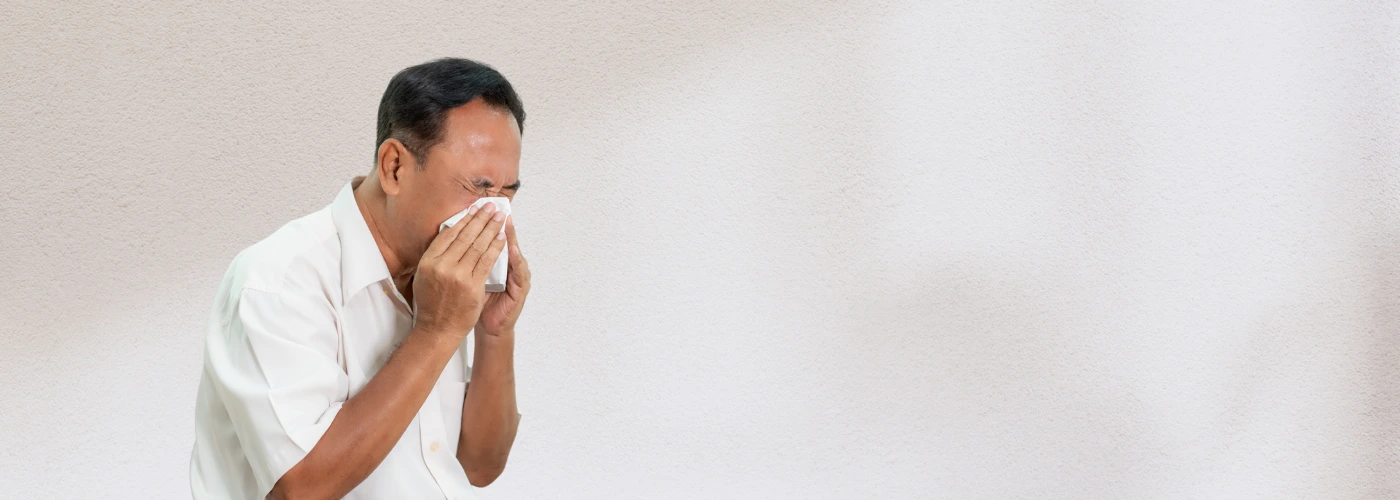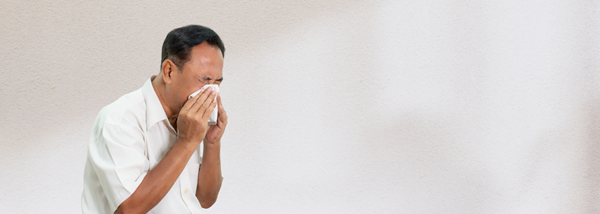Topics
What Is Pneumonia and Why Are Older Adults More at Risk?
Pneumonia is a serious lung infection caused by bacteria, viruses, or fungi. It inflames the air sacs in one or both lungs, often filling them with fluid or pus. This condition leads to symptoms like persistent coughing, difficulty breathing, fever, and chest pain. Older adults face a significantly higher risk of pneumonia due to age-related changes in their immune systems. As the body ages, its ability to fight off infections weakens, making older people more vulnerable. Chronic illnesses such as diabetes, heart disease, and chronic obstructive pulmonary disease (COPD) further increase susceptibility. Malnutrition and sedentary lifestyles also contribute to heightened risks. Recognising these risk factors and taking preventive measures are crucial for protecting older individuals from severe complications. Pantai Hospitals provide expert care, offering targeted interventions to reduce pneumonia risks for vulnerable populations. Their experienced healthcare professionals ensure early diagnosis and effective treatment plans tailored to individual needs.
How Can Pneumonia Be Prevented in Older Adults?
Encourage Vaccinations
Vaccinations remain one of the most effective ways to prevent pneumonia, especially in older adults. The pneumococcal vaccine provides protection against bacterial pneumonia, which is a common and severe form of the disease. Annual influenza vaccines also play a critical role, as flu infections can lead to pneumonia. Ensuring up-to-date vaccinations reduces the likelihood of severe illness. Pantai Hospitals offer convenient vaccination services, providing comprehensive immunisation packages that cater to all age groups.
Adopt a Healthy Lifestyle
A healthy lifestyle strengthens the immune system, reducing the risk of infections like pneumonia. A balanced diet rich in fruits, vegetables, and proteins provides essential nutrients for maintaining immunity. Regular physical activity improves lung function and overall respiratory health. Additionally, quitting smoking is critical, as tobacco damages lung tissues and increases susceptibility to respiratory infections. Pantai Hospitals support healthy living through preventive screenings and guidance from nutritionists and healthcare experts.
What Are the Symptoms of Pneumonia in Older People?
Respiratory Symptoms
Pneumonia in older adults often begins with respiratory symptoms. Persistent coughing, which may produce mucus or phlegm, is a common sign. Shortness of breath can occur even during minimal physical activities, making daily tasks more challenging. Chest pain is another hallmark symptom, especially when breathing deeply or coughing. These respiratory issues can significantly affect an individual’s quality of life.
Systemic Signs
Systemic symptoms often accompany respiratory issues in pneumonia cases. Fever and chills indicate the body’s response to infection. However, older adults may exhibit atypical symptoms like confusion or disorientation, which occur due to reduced oxygen levels in the blood. Fatigue and general weakness are also prevalent, making it difficult for older individuals to carry out their regular activities.
Other Indicators
Loss of appetite is a common yet less recognised symptom of pneumonia, often leading to unintentional weight loss. Dehydration may occur as individuals struggle to maintain adequate fluid intake. In severe cases, pneumonia can cause complications like low blood pressure or reduced kidney function. Detecting these symptoms early ensures prompt medical attention, reducing the risk of long-term health problems.
Why Is Early Diagnosis and Treatment Crucial for Pneumonia?
Early diagnosis of pneumonia is essential to prevent severe complications such as respiratory failure, sepsis, or multi-organ damage. Prompt identification of symptoms allows for faster initiation of treatment, improving recovery outcomes.
Effective treatment includes antibiotics for bacterial pneumonia, antiviral medications for viral cases, and supportive care like oxygen therapy. Delaying treatment can exacerbate the condition, leading to severe health challenges. Pantai Hospitals prioritise early diagnosis and personalised care, ensuring each patient receives tailored treatment plans. Their multidisciplinary approach focuses on quick recovery and preventing complications, offering peace of mind for patients and their families.
Frequently Asked Questions (FAQs)
1. How is pneumonia diagnosed, and are there any non-invasive methods?
Doctors diagnose pneumonia using various methods, including physical examinations and imaging tests like chest X-rays. Non-invasive techniques such as pulse oximetry measure oxygen levels in the blood, helping identify potential respiratory issues without discomfort.
2. What are the long-term effects of pneumonia in older adults?
Pneumonia can have lasting effects on older adults, including reduced lung function and prolonged fatigue. These long-term impacts can hinder daily activities and may require extended rehabilitation to restore health fully.
3. Can pneumonia recur, and how can it be managed?
Yes, pneumonia can recur, particularly in individuals with weakened immune systems or underlying health conditions. Vaccination, regular health check-ups, and maintaining a healthy lifestyle are effective strategies for preventing recurrence.
4. How does Malaysia’s climate impact pneumonia cases?
Malaysia’s humid climate creates an environment conducive to respiratory infections. Seasonal changes, particularly during the monsoon season, often lead to an increase in pneumonia cases among vulnerable groups.
5. Does Pantai Hospitals offer pneumonia-related health checks or packages?
Pantai Hospitals provide comprehensive health checks tailored to respiratory health. These include lung function tests, vaccinations, and consultations with respiratory specialists to ensure early detection and prevention of pneumonia.
Book an Appointment at Pantai Hospitals
Pneumonia can cause severe health complications if left untreated. If you or someone you know experiences symptoms such as a persistent cough, fever, difficulty breathing, or chest pain, seek medical attention promptly. Early diagnosis and treatment can significantly improve recovery outcomes and prevent serious complications.
For health screening or vaccine consultations, you can book an appointment through our website or download the MyHealth360 application from Google Play Store or Apple App Store. Our dedicated healthcare professionals are here to provide personalised care for you and your loved ones.
Pantai Hospitals have been accredited by the Malaysian Society for Quality in Health (MSQH) for its commitment to patient safety and service quality.













